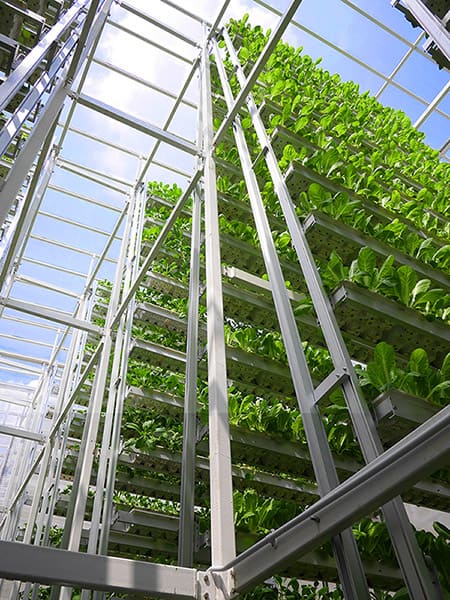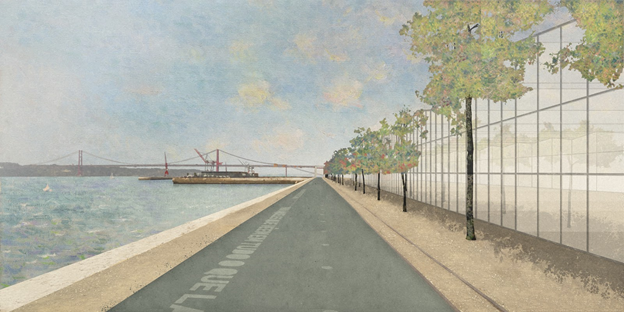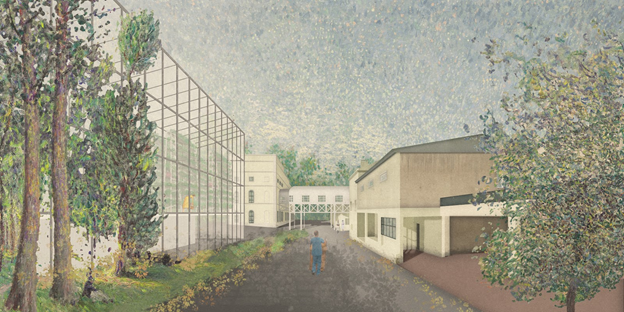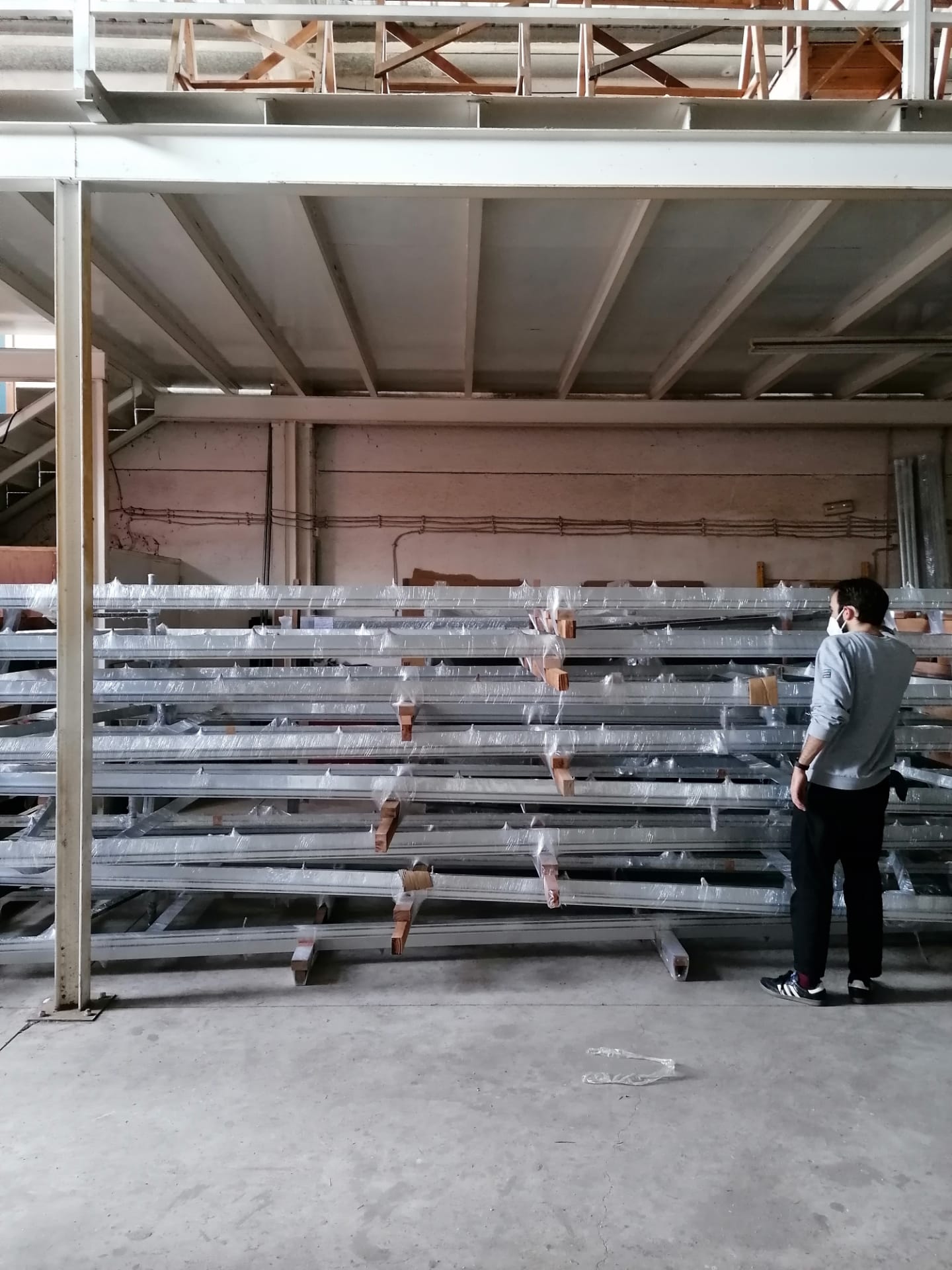Share


Settled by the promoter
Lisbon Vertical Farming
Lisboa, PT
instalment
monthly
term
2 years
yearly interest
5.1%
risk rating
C+
Rotating vertical farming system in Lisbon.
Description
The goal of Reculture is to bring rotating vertical farms to Europe, enabling cities to grow food sustainably and profitably. The system, which has been developed in Singapore, consists of a rotating tower that allows for all the crops to get equal access to light, meaning they can be outside, with no expensive lighting or climate control required and all the work can be performed on the ground.
It’s an elegantly simple solution to the challenges of urban food production and consumption.

The money raised through this campaign will be used as launchpad cash to cover the costs of the first rotating farm arriving in Europe, in about a month. The tower will be installed at the Museum of Lisbon, in the garden of the Palácio Pimenta, for a year long exhibition about the future of food and farming in Lisbon, as part of Lisboa Green Capital 2020. This will be used as a showcase to demonstrate the towers in action, and their potential to transform an urban food system.
The exhibition will show models and renders of 8 actual Lisbon locations where rotating farms could be installed, each in their own Food Temple (the name for the bespoke, integrated greenhouse with an education zone, food preparation and dining area.) The goal is not only to imagine, but to demonstrate the potential that is within the grasp, to make the city more sustainable, healthy and resilient.


The 6-meter towers will grow about 100kg of leafy greens every month in just 8 sqm of land.
The money raised will cover the material costs of the tower itself, as well as its shipping and installation; the running costs of the farmer; the compost and baby plants that will be grown to maturity for local distribution and sales; and digital marketing costs.
The Impact
Reculture’s vision is of a world in which everyone can grow their own food in the most efficient and sustainable way possible.
Environmental impacts:
- Reduction on the dependence on synthetic fertilizers, pesticides and toxic herbicides;
- Promotion of local production and consumption, by creating a cooperative system that avoids the dependence on large retailers;
- Reduction of CO2 emissions, when compared with the traditional vertical systems, that require artificial lighting (50% less energy inputs required, such as climate control, air conditioning, humidifiers...). Additionally, it avoids the emission from the transportation of goods, typical of conventional agriculture;
- Water reduction consumption: 10 times higher yields per square metre (with €1.250/sqm/year, assuming €10/kg,), using 90% less water when compared to conventional agriculture;
- Reduced vulnerability to climate change, when compared to organic and other eco-friendly farming techniques, that cannot be scaled up quickly to meet global demand;
- Reduced land exploitation and pressure.
Social impacts:
- Food education, through events and workshops that connect the community, customers and beneficiaries;
- Improved quality, variety and nutritional value of the food provided, in a country where 1/3 of the children are overweight, 1/10 of the households suffer food insecurity, and ½ fail to eat the recommended daily amount of fresh fruit and vegetables;
- Innovative production: globally, over 1 billion tons of food is wasted every year, wasting almost ⅓ of all Earth's farmlands, creating 3 billion tons of greenhouse gases, and costing $750 billion per year. By creating centers of sustainable micro production in the heart of our cities, this solution leads to food sovereignty for all.
Contribution to the Sustainable
Development Goals
Sustainable Development Goals
.64a95ce.png)
.39b0412.png)
.628b215.png)
Financial viability
The Goparity loan will finance: the purchase, transportation and installation costs of the first Tower; organic compound and baby plants for plantation and cultivation; sale and local distribution; and marketing costs. It will provide the working capital required to raise investment or secure a contract for the 16 unit farm by May 2021. That farm will then provide enough revenue through crop sales to cover ongoing costs, and to pay back the remainder of the loan (net €8.000 per month). Other sources of income include: the sales of crops generated by the Museum of Lisbon tower (net €500 per month); a rewards-based crowdfunding campaign with Circular Innovation Lab, aiming to raise €20.000 over 6 months; a BIPZIP grant of €75.000 to pay for the installation and management of 4 towers in Alvalade, in collaboration with the local Junta de Freguesia. This latter funding will act as a second demonstration site, with the added social impact of working in deprived neighbourhoods, using the food grown and the sales generated to enrich the community. Together, the two showcases of the Museum and the Alvalade site demonstrate the scalability and potential impact of this technology.
Download Key Investment Information Sheet
Guarantees
Personal guarantee from the owners (Bruno Lacey and Tiago Gomes).
The Promoter
About ABUNDANTQUOTIDIAN - ASSOCIAÇÃO
Reculture is a collaboration between an architectural studio (Parto Atelier) and an established social entrepreneur (Bruno Lacey). Together, they bring the necessary skills in business development, design, urban planning, horticulture, and community engagement.
Bruno has spent the past 7 years as the founder of Urban Growth, a social enterprise that creates and maintains communal green spaces in London, in order to make the city greener, healthier, and happier. Having moved to Lisbon in 2019, he met Parto Atelier while installing green walls for clients such as the Cultural Centre of Cabo Verde. When Covid-19 hit, they teamed up to pursue their vision of a future Lisbon, socially just, sustainable, healthy, and resilient. They signed the exclusive distribution agreement with Sky Greens (a company from Singapore that has developed a rotating vertical farm) in June, and within weeks had submitted their successful funding application for €75,000, and had secured the garden of the Museum of Lisbon to be the location of the first rotating vertical farm in Europe.
The company's legal name is Association ABUNDANTQUOTIDIAN (AQ). AQ will be the exclusive distributor for Sky Greens in Iberia until August 2021, with continuity expected once sales targets are met. Sky Greens’ technology, backed by 10 years of product development, provides the means to create an urban food revolution. The promoter’s vision is to create hundreds of urban micro-farms in the hearts of communities. The plan is not to simply sell farming infrastructure, but offer “farming as a service”, empowering individuals and communities to grow their own organic-quality food in a financially sustainable way.
Food Temple - will be used to demonstrate what the technology can do and also experiment with different growing techniques, crops, labour cycles, harvesting, packaging, and distribution systems. The Food Temple will also be a place to celebrate the growing and eating of food, including a kitchen and dining area so that visitors can learn about and enjoy the crops produced together, from seed to plate.
Farming as a Service (FaaS) - using the Food Temple to prototype and experiment, we will develop turn-key solutions that make urban farming accessible, affordable, and lucrative. We will hold potential clients’ hands every step of the way, from site surveys to design and installation, providing start-up materials, ongoing supplies (compost, seeds, plants, packaging), and maintenance contracts. We will also develop an online platform that connects growers with potential markets, and offer sales and distribution services for crops and secondary products (jams, dried herbs, soaps, etc).
Cooperative Model - all of this will be delivered and managed through a cooperative model, of which all suppliers and clients are members. All the tools, techniques, and materials will be open-source (except for the Sky Greens towers themselves), and stakeholders will be invited to collaborate in the experiments to optimize growing techniques. By unifying all the stakeholders through shared benefits, the promoter hopes to create a resilient, collaborative system of food production and distribution.
Business Model
A 6-meter SkyGreens tower costs €10,000 to install, and conservative estimates suggest it can deliver c.€10,000 of product per year at retail prices. Running costs vary according to the size of the installation, point of sales, distribution, marketing, and other overheads. But it is safe to assume that, by the end of year two, the initial investment would be recouped. The first year of growing (autumn 2020-21) will give the harvest data required to finalize the ROI model. Nevertheless, even if sales figures are half of the expected €10,000 per unit per year (which is itself a conservative estimate), a ROI of 3-4 years can be safely assumed.
The Association will be primarily selling farming as a service, providing the following segments:
- Institutions that feed a large number of people (such as schools, universities, hospitals, prisons, nursing homes, business parks with communal canteens, or any other organization run by the state or a charity with a benefit for the community). These institutions, the upfront investors in a site, can use the crops they grow for themselves, with minimal need for packaging and transport, and no sales transaction, enabling them to feed their communities in a more sustainable and healthy way, while saving money.
- Supermarkets or other retailers, seeking differentiation, following the model above.
- Restaurants and other food producers that would value the crops primarily for their freshness, flavour, and variety (that is not easily available through wholesale), as well as for the diner-facing narrative of innovative, sustainable, and local production.
- Growth on demand, working with chefs to craft seasonal menus around the produce. Zero-waste packaging and zero-emission distribution infrastructure could be developed to serve this market.
- Individual consumers, which requires its own point of sales. A ‘farm gate’ interface would be the simplest, but delivery models could also be pursued, especially in a post-Covid landscape.
Active since
2020
Fiscal country
PT
Operating In
Portugal
Industry
Agriculture
Number of Goparity Loans
1
Women Shareholders
Yes
Updates
2022-11-10
Sky to table
This workshop opens a dialogue about the role architecture can play in transforming cities from linear to circular models with a view to sustainability. Through a visit to the first upfarm...
Read more →2022-10-19
Loan restructuring
This loan has been restructured as following: introduction of 3 months grace period for the capital amortization and a 3 months extension to the project term.
2021-11-16
Loan restructuring
This loan has been restructured as following: introduction of 6-month grace period for the capital amortisation.
2021-02-25

Project Update
The towers have arrived despite being subject to a number of bureaucratic procedures which delayed the process. They are now in storage in Loures.
The promoter expects the first installation to start in early March.
The promoter is also in discussions with investors who approached the company to create a food hall with 15 vertical farms.
The branding package is 99% completed and the company has a team of designers and developers who are working on the website's design.
The company is also in discussions with a famous hotel in Lisbon, seeking to install two towers, in collaboration with a head chef.
There are also ongoing discussions with NOVA University in Lisbon to install two towers on their campus.
There have been further contacts with investors who are looking to create crop farms with the promoter's technology, this is dependant on market research.
The company has applied to multiple accelerators around Europe, and are developing a submission to Lisboa' Orçamento Participativo.
Ernst and Young have taken the company into their Ripples program, supporting the promoter pro bono, with a dedicated team to help raising investment and improve existing systems.
2020-11-20
First payment
First instalment was paid to all the investors
2020-10-19
100% funded
151 investors successfully raised 30.000€
2020-10-14
Open for investment
This campaign is open for investment
Sign up to our newsletter and stay up-to-date on our investment opportunities






